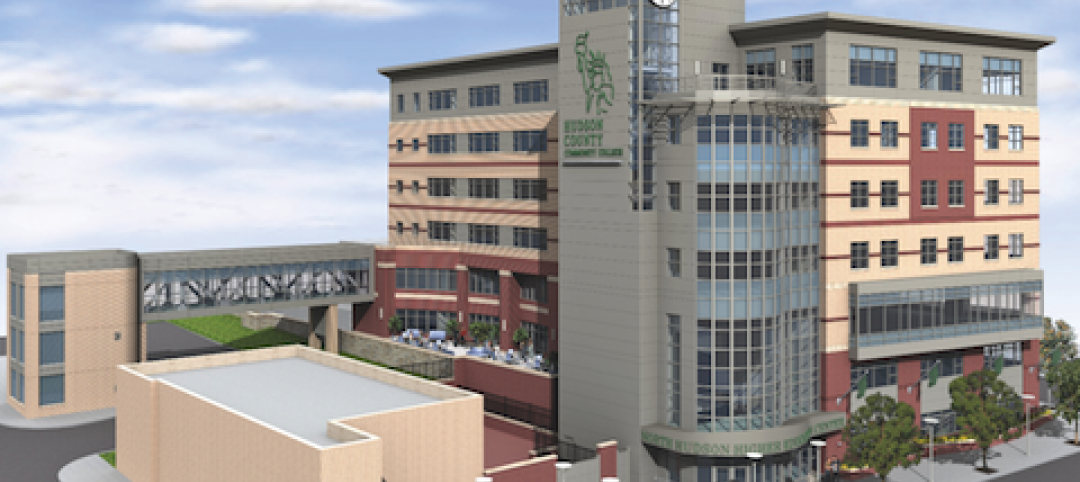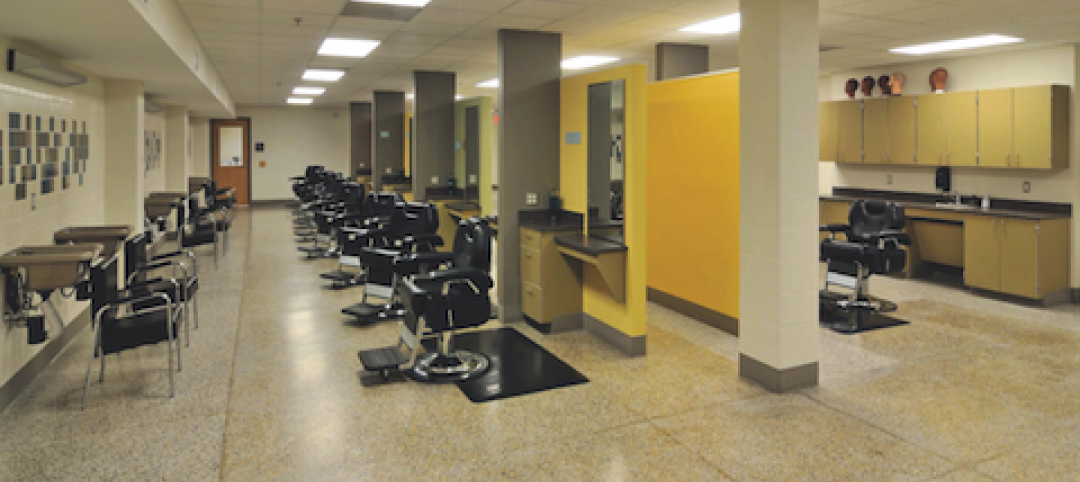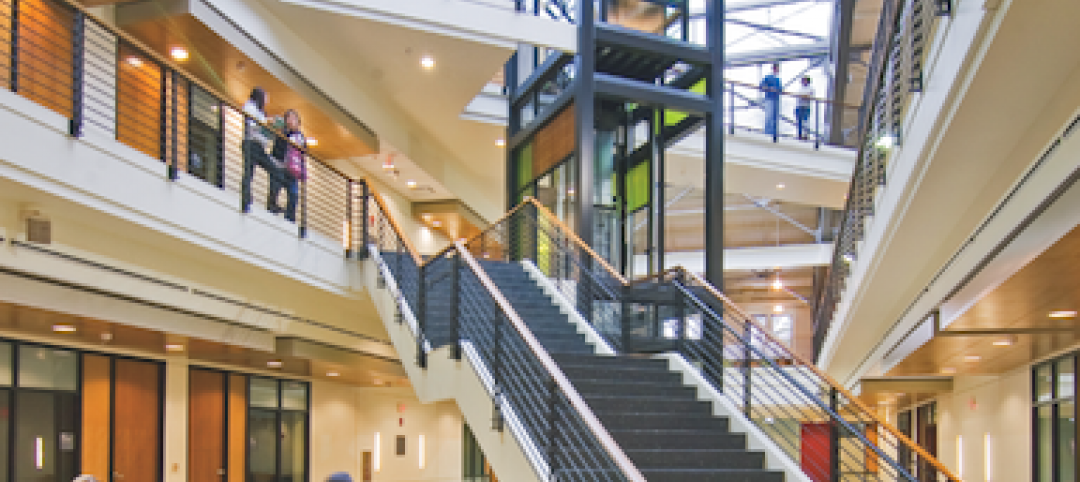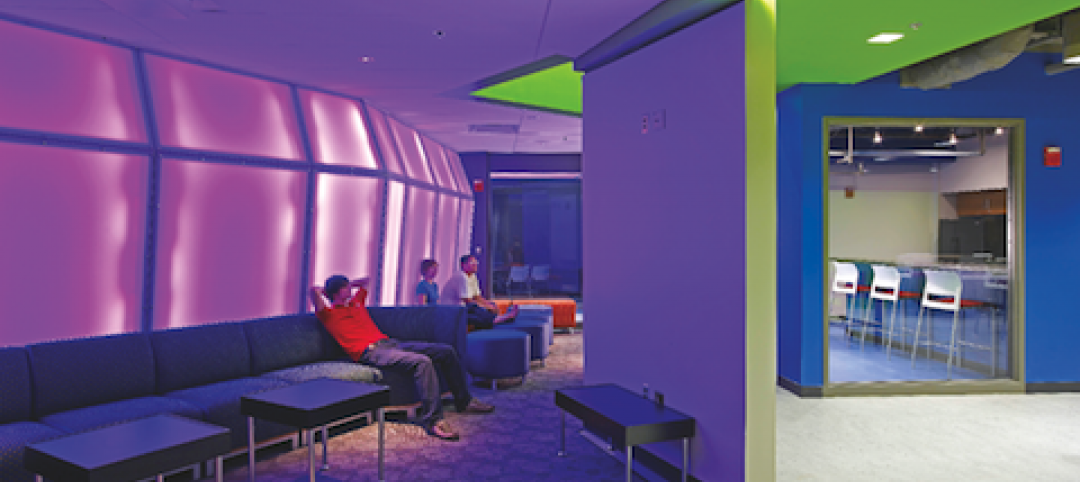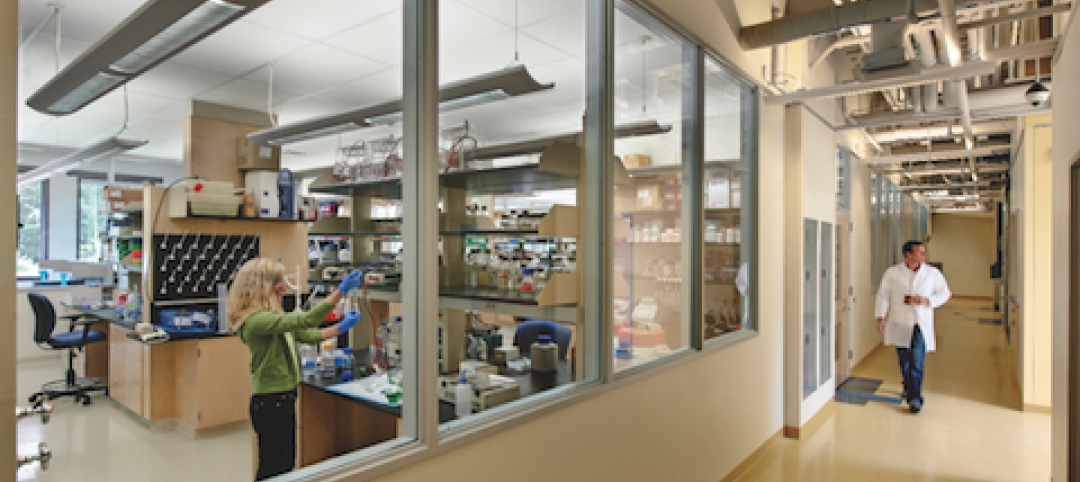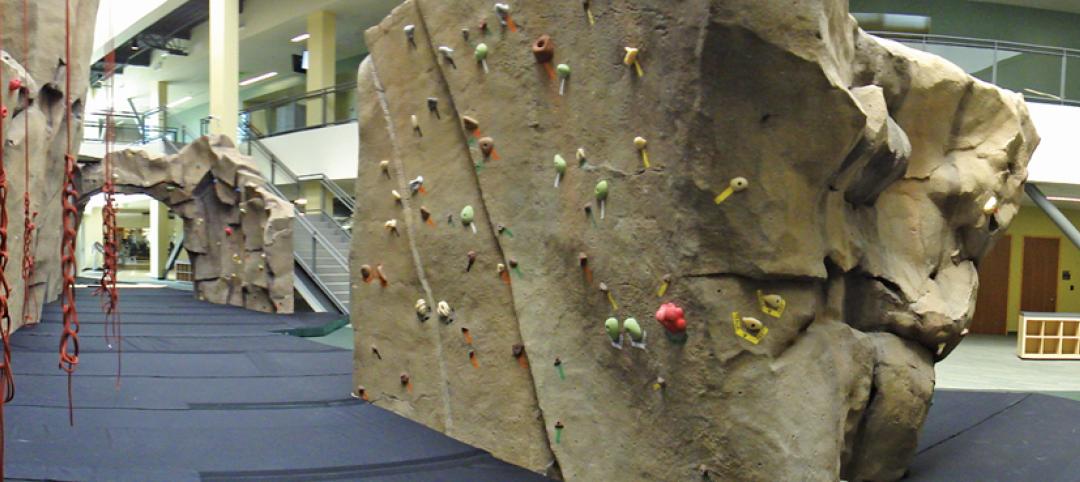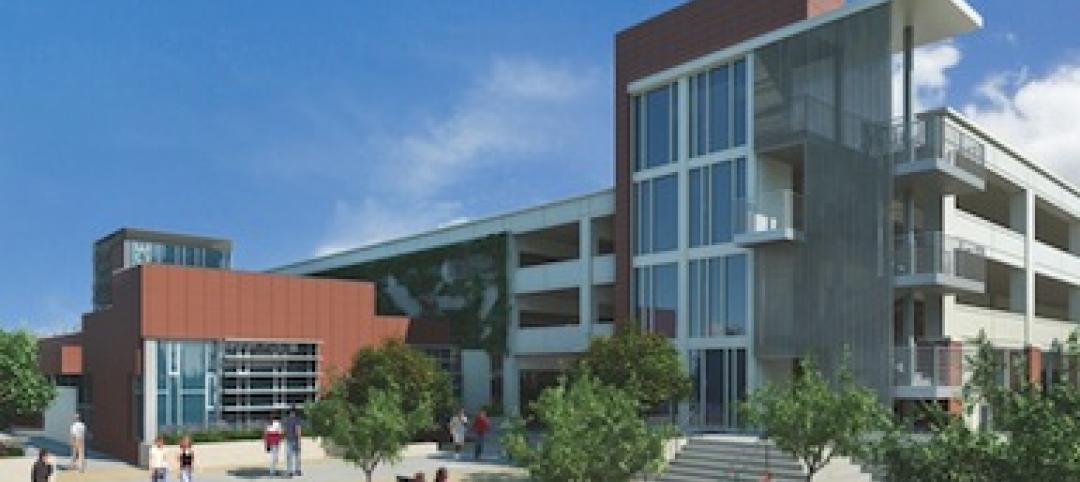From its humble beginnings as a tiny pharmaceutical college founded by 14 Boston pharmacists, the Massachusetts College of Pharmacy & Health Sciences has grown to become the largest school of its kind in the U.S.
For more than 175 years, MCPHS operated solely in Boston, on a quaint, 2,500-student campus in the heart of the city's famed Longwood Medical and Academic Area. By the late 1990s, however, the campus was bursting at the seams as the demand for pharmacy and health sciences professionals skyrocketed.
To accommodate the rapid growth, college officials set forth an ambitious plan to build a satellite campus in Worcester for 400 students, including housing for 175 graduate students.
Worcester is home to a number of prestigious clinical organizations, including the UMass Memorial Medical Center, providing plenty of partnership opportunities for the school. The city is also in the midst of an aggressive urban revitalization effort, and MCPHS was viewed by city officials as crucial to rejuvenating the city core.
In 2000, MCPHS snatched up two adjacent historic buildings in the heart of the city and within months converted the first—an 1890s-era commercial structure—into 60,000 sf of research, instruction, and lab space. Soon after, the college began work on the crown jewel of its new satellite campus: the nine-story, 100,000-sf Living and Learning Center.
The $20 million project involved restoring and converting the 1913 Graphic Arts Building into a mixed-use facility complete with street-level retail, classrooms, labs, conference rooms, faculty offices, and five levels of apartment-style residence space.
The construction effort was split into two phases and spanned 16 months. It involved the addition of a ninth floor, restoration of the existing façade, the gut-conversion of the eight existing floors, and construction of three CMU shafts from the basement to the top floors to accommodate new fire stairs and elevators and to support the rooftop addition.
The Building Team employed a fast-track schedule that left little room for error. Case in point: The critical-path schedule for the rooftop addition left less than two months for the installation and testing of new electrical and mechanical rooms on the top floor.
“This project is a great example of superior logistics in construction,” said Reconstruction Awards judge Kenneth R. Osmun, P.E., DBIA, president of Wight Construction, Darien, Ill.
Related Stories
| Oct 13, 2010
Community college plans new campus building
Construction is moving along on Hudson County Community College’s North Hudson Campus Center in Union City, N.J. The seven-story, 92,000-sf building will be the first higher education facility in the city.
| Oct 12, 2010
Holton Career and Resource Center, Durham, N.C.
27th Annual Reconstruction Awards—Special Recognition. Early in the current decade, violence within the community of Northeast Central Durham, N.C., escalated to the point where school safety officers at Holton Junior High School feared for their own safety. The school eventually closed and the property sat vacant for five years.
| Oct 12, 2010
University of Toledo, Memorial Field House
27th Annual Reconstruction Awards—Silver Award. Memorial Field House, once the lovely Collegiate Gothic (ca. 1933) centerpiece (along with neighboring University Hall) of the University of Toledo campus, took its share of abuse after a new athletic arena made it redundant, in 1976. The ultimate insult occurred when the ROTC used it as a paintball venue.
| Oct 12, 2010
Owen Hall, Michigan State University, East Lansing, Mich.
27th Annual Reconstruction Awards—Silver Award. Officials at Michigan State University’s East Lansing Campus were concerned that Owen Hall, a mid-20th-century residence facility, was no longer attracting much interest from its target audience, graduate and international students.
| Oct 12, 2010
Cell and Genome Sciences Building, Farmington, Conn.
27th Annual Reconstruction Awards—Silver Award. Administrators at the University of Connecticut Health Center in Farmington didn’t think much of the 1970s building they planned to turn into the school’s Cell and Genome Sciences Building. It’s not that the former toxicology research facility was in such terrible shape, but the 117,800-sf structure had almost no windows and its interior was dark and chopped up.
| Oct 12, 2010
Full Steam Ahead for Sustainable Power Plant
An innovative restoration turns a historic but inoperable coal-burning steam plant into a modern, energy-efficient marvel at Duke University.
| Oct 6, 2010
From grocery store to culinary school
A former West Philadelphia supermarket is moving up the food chain, transitioning from grocery store to the Center for Culinary Enterprise, a business culinary training school.
| Sep 16, 2010
Green recreation/wellness center targets physical, environmental health
The 151,000-sf recreation and wellness center at California State University’s Sacramento campus, called the WELL (for “wellness, education, leisure, lifestyle”), has a fitness center, café, indoor track, gymnasium, racquetball courts, educational and counseling space, the largest rock climbing wall in the CSU system.
| Sep 13, 2010
Community college police, parking structure targets LEED Platinum
The San Diego Community College District's $1.555 billion construction program continues with groundbreaking for a 6,000-sf police substation and an 828-space, four-story parking structure at San Diego Miramar College.
| Sep 13, 2010
Campus housing fosters community connection
A 600,000-sf complex on the University of Washington's Seattle campus will include four residence halls for 1,650 students and a 100-seat cafe, 8,000-sf grocery store, and conference center with 200-seat auditorium for both student and community use.


